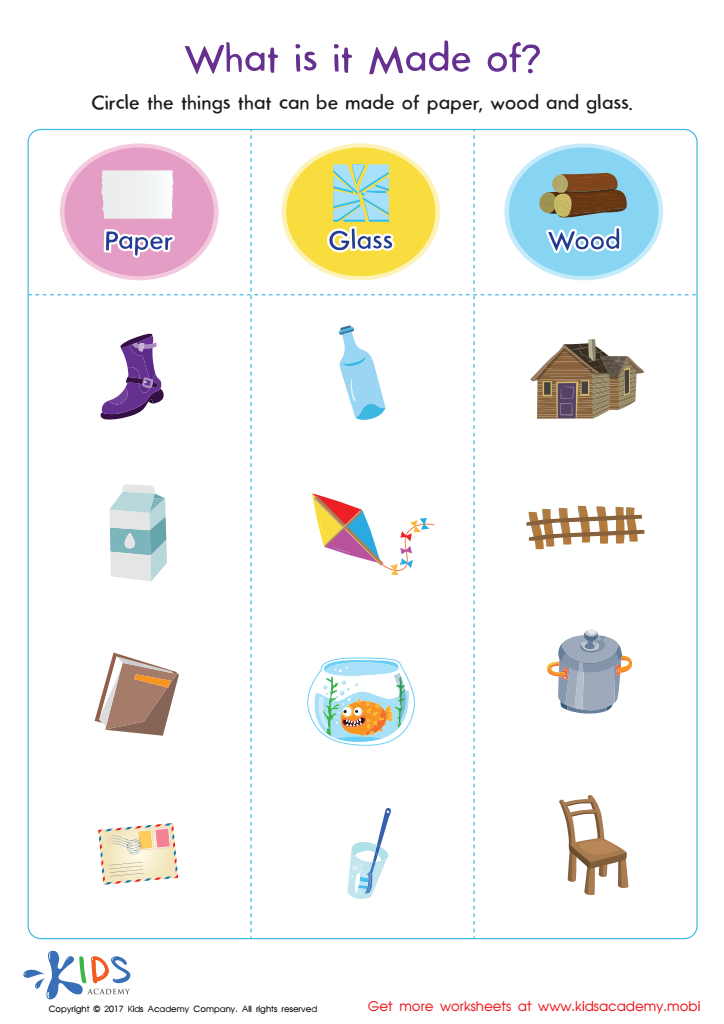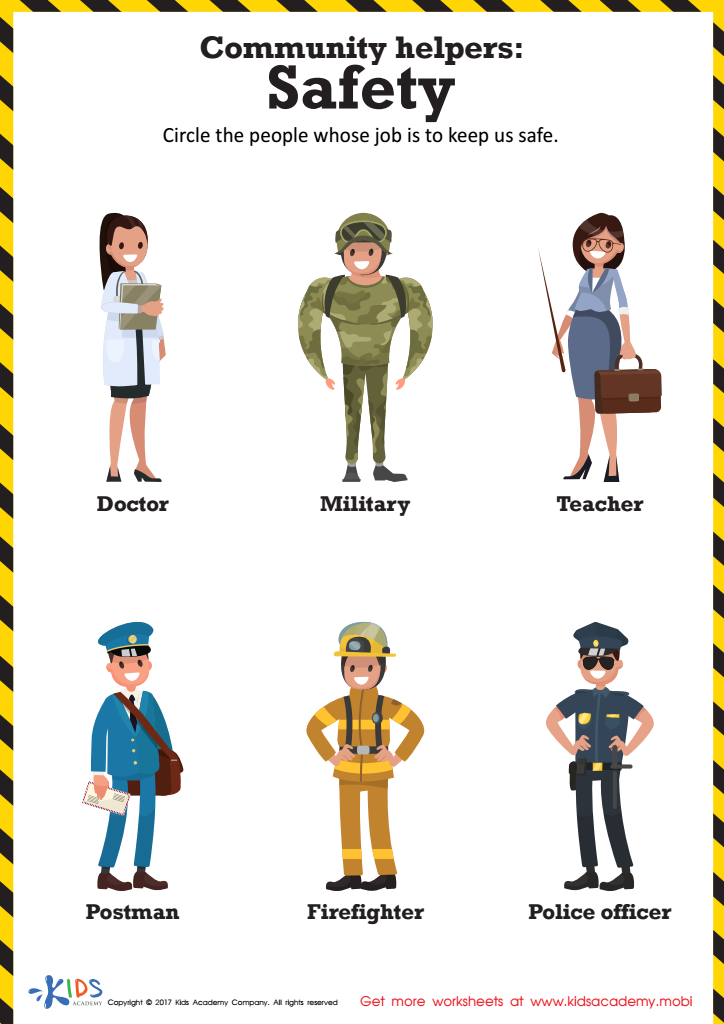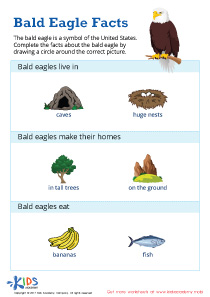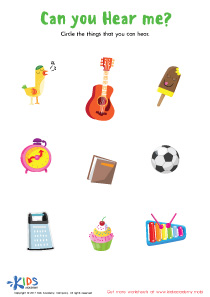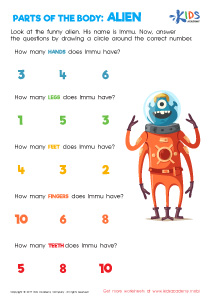Community Worksheets for Ages 5-9
31 filtered results
Difficulty Level
Grade
Age
-
From - To
Subject
Activity
Standards
Favorites
With answer key
Interactive
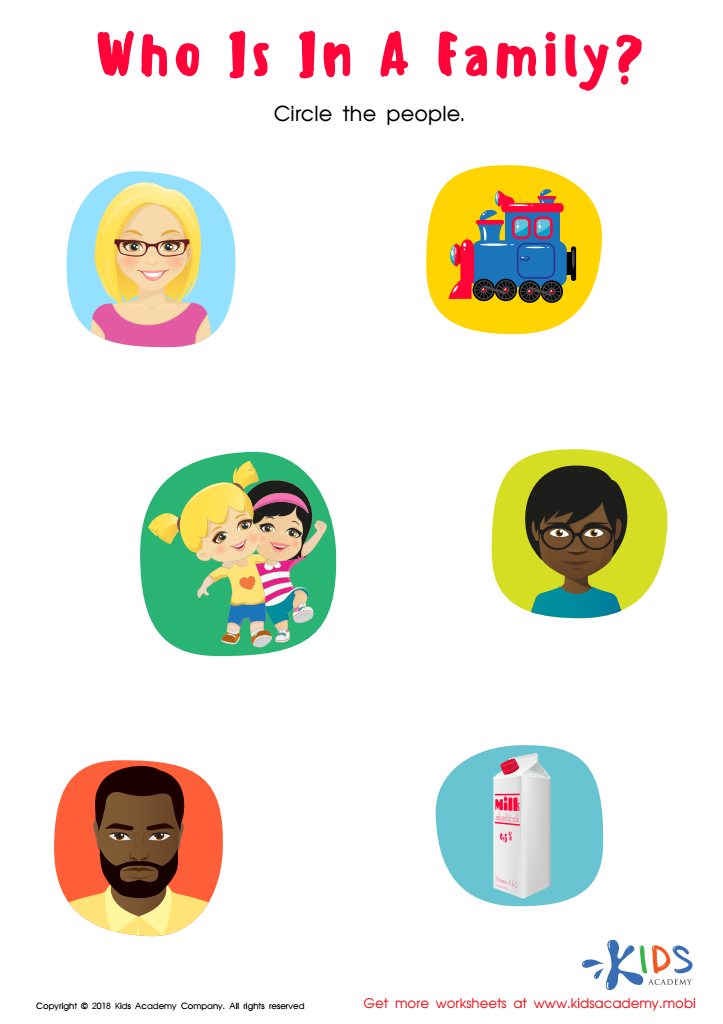

Who Is in a Family? Worksheet
Kids enjoy discussing families. This easy, colorful worksheet helps them determine if a person or thing is in a family. Children look at each picture, name it, and circle it if it represents someone in a family. It introduces or reinforces family words, making it ideal for toddlers.
Who Is in a Family? Worksheet
Worksheet
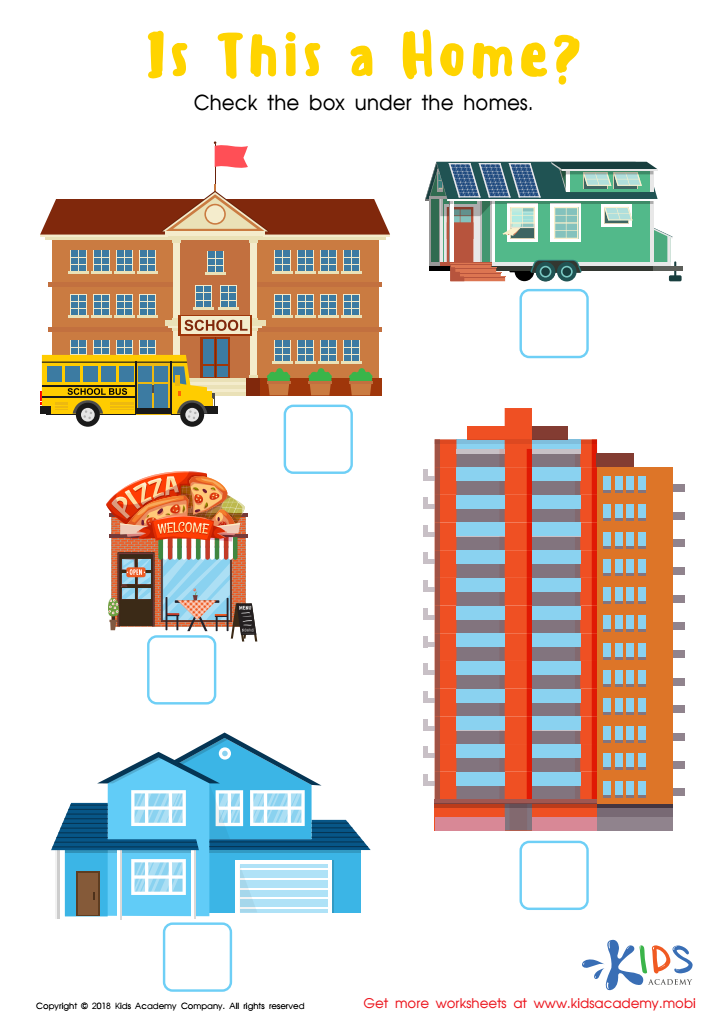

Is this a Home? Worksheet
Ask your child what the building you live in is called. Is it a home, restaurant or hospital? Then look at the pictures in the worksheet and ask them to identify which are homes - even if they don't look like yours. Check the box next to the homes in the pictures.
Is this a Home? Worksheet
Worksheet
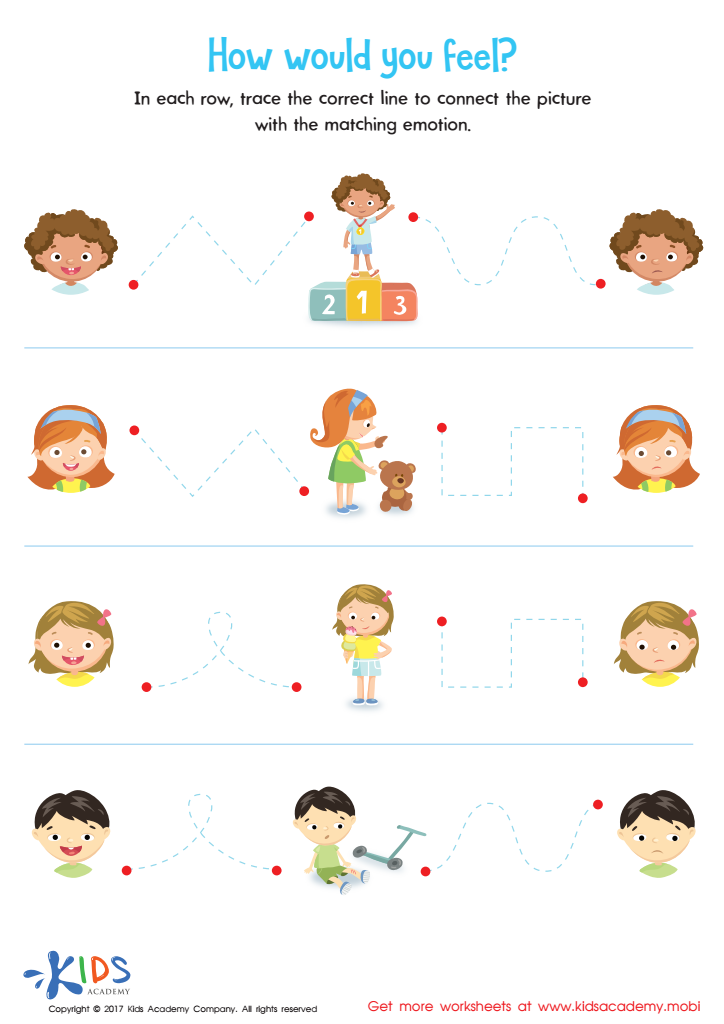

Feelings and Emotions Worksheet
Kids must learn how to deal with situations and handle their own emotions. This worksheet helps them practice empathy and resilience, making them more self-aware and confident. It also helps them to relate their life experiences to common disappointments and develop coping mechanisms.
Feelings and Emotions Worksheet
Worksheet
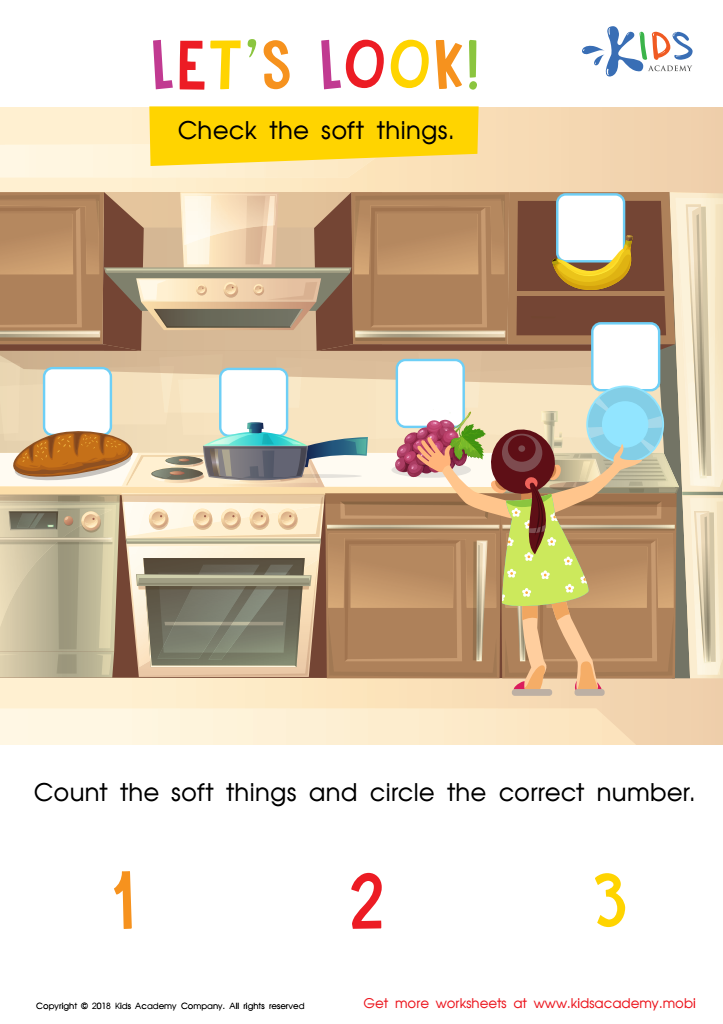

Let's Look! Assessment Worksheet
Have your child look at the picture in the printout and name the objects. Ask which ones are soft and hard and have them count the soft objects and circle the number. This worksheet will engage your child's thinking and teach them about texture.
Let's Look! Assessment Worksheet
Worksheet
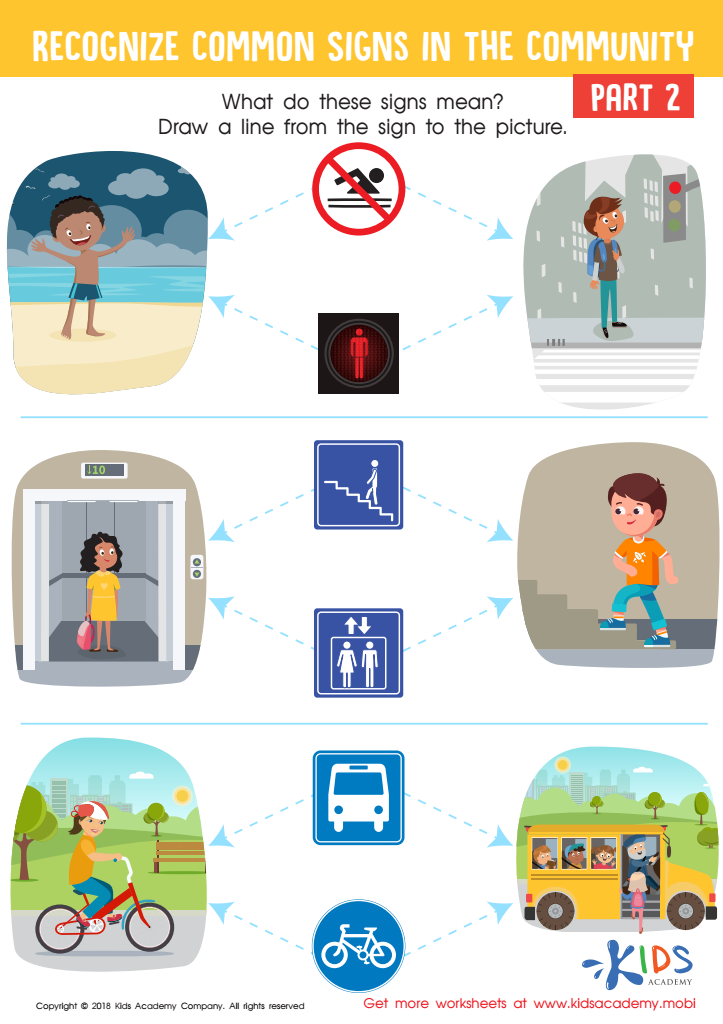

Recognize Common Signs: Part 2 Worksheet
This PDF worksheet helps your preschooler match prior knowledge to community activity signs, aiding development of pre-reading skills. It gives them pictorial comprehension which links to decoding and fluent reading. Pictures are key - it all begins here!
Recognize Common Signs: Part 2 Worksheet
Worksheet
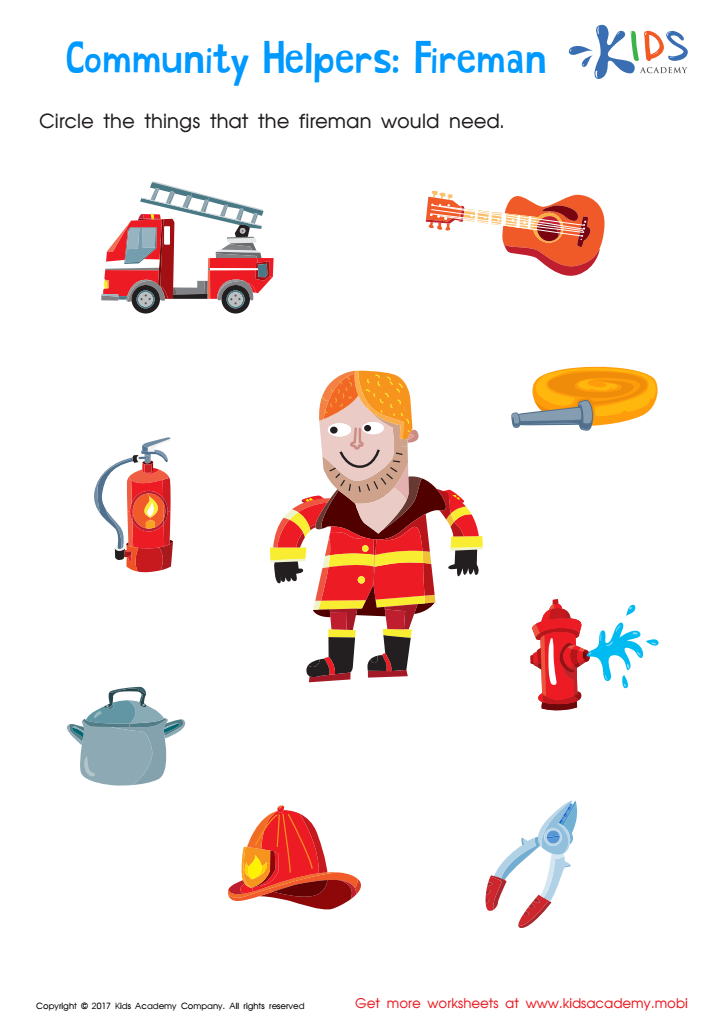

Fireman Worksheet
Kids love firemen and their big fire engines! Inspire your child to learn about their duties with this fun fireman worksheet. It'll help your child understand the role of firemen, as well as develop matching and problem solving skills. Get your kid started on understanding a key role in society and have fun too!
Fireman Worksheet
Worksheet
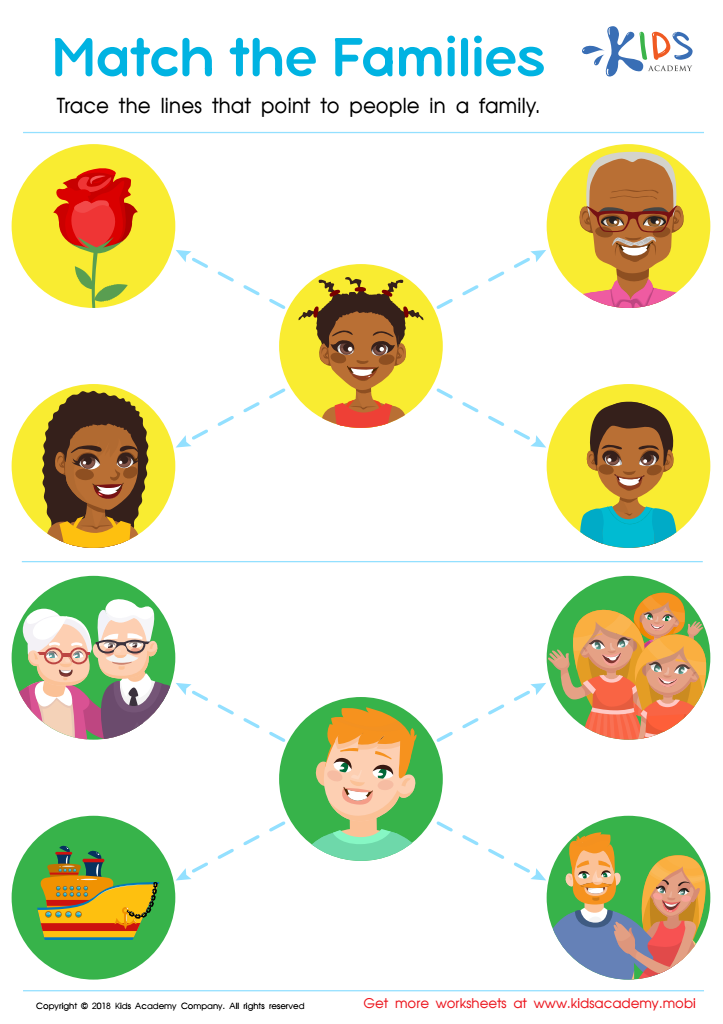

Match the Families Worksheet
Ask your students what a family is and who makes up theirs. Then, help them with a traceable worksheet of a family. By knowing the members of their own family, they will easily complete the task of tracing the picture to form a proper family.
Match the Families Worksheet
Worksheet
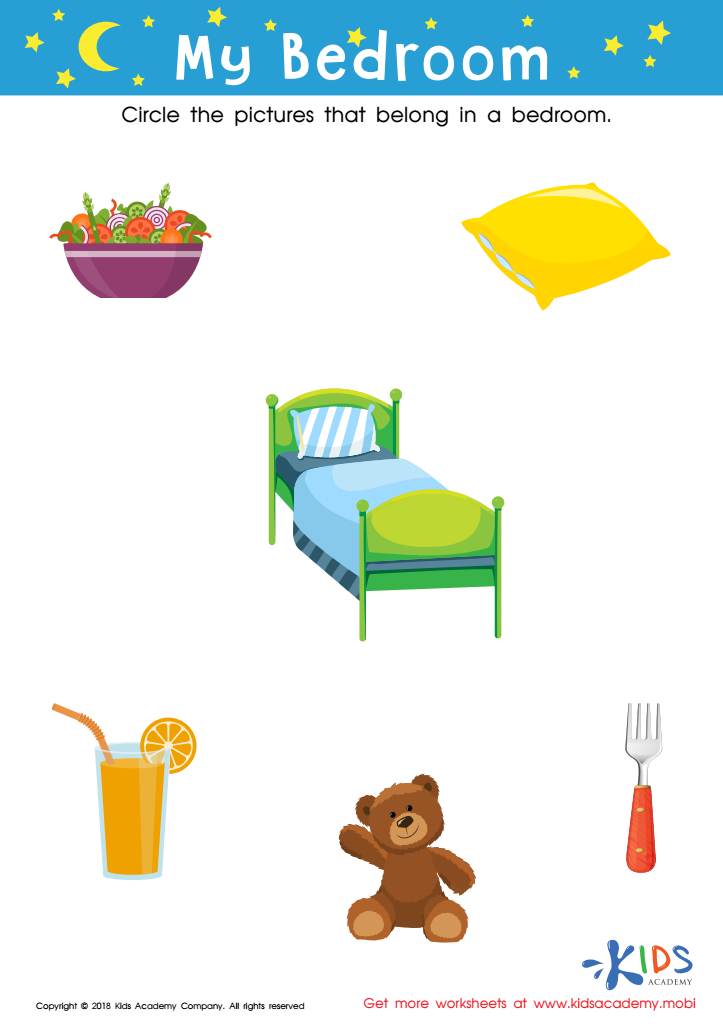

My Bedroom Worksheet
Your child's room is their special space, where only a few are allowed in. You may have let them choose some special decorations, like wall stickers and toys. This exercise will be easy for your child, as they know their bedroom well. Ask them to circle the pictures that belong in a bedroom.
My Bedroom Worksheet
Worksheet
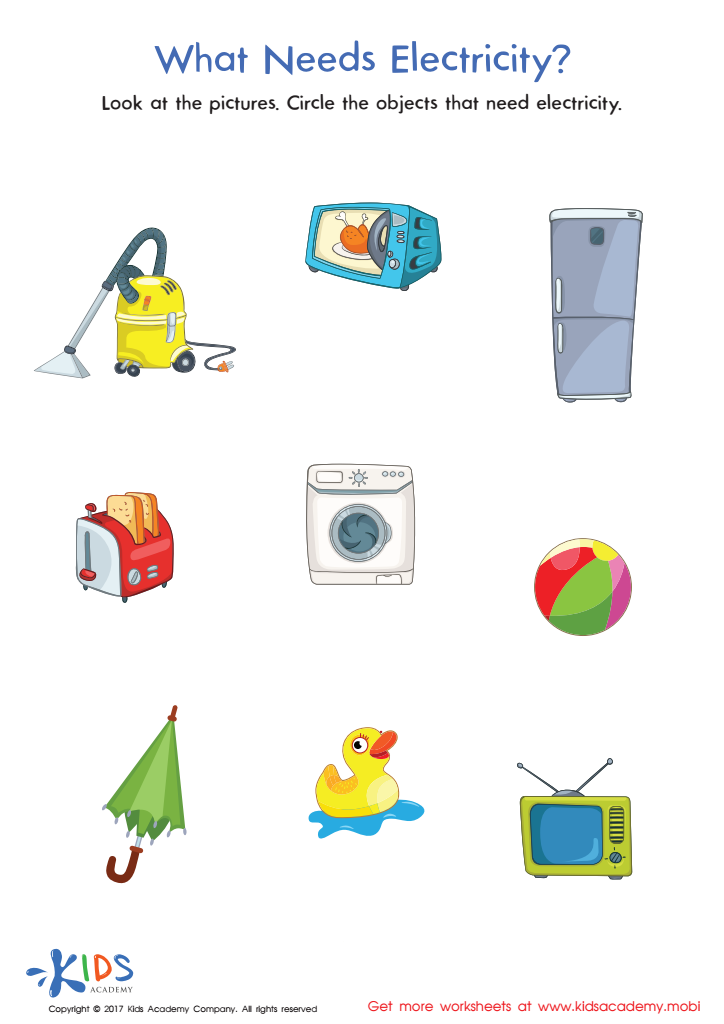

What Needs Electricity Printable
Up to 80 words: This worksheet will help your child use sorting skills to find the right objects that need electricity, strengthen problem solving skills, and learn more about electricity and electrical appliances. Let this fascinating science topic teach your little learner about the objects in their lives that need electricity!
What Needs Electricity Printable
Worksheet
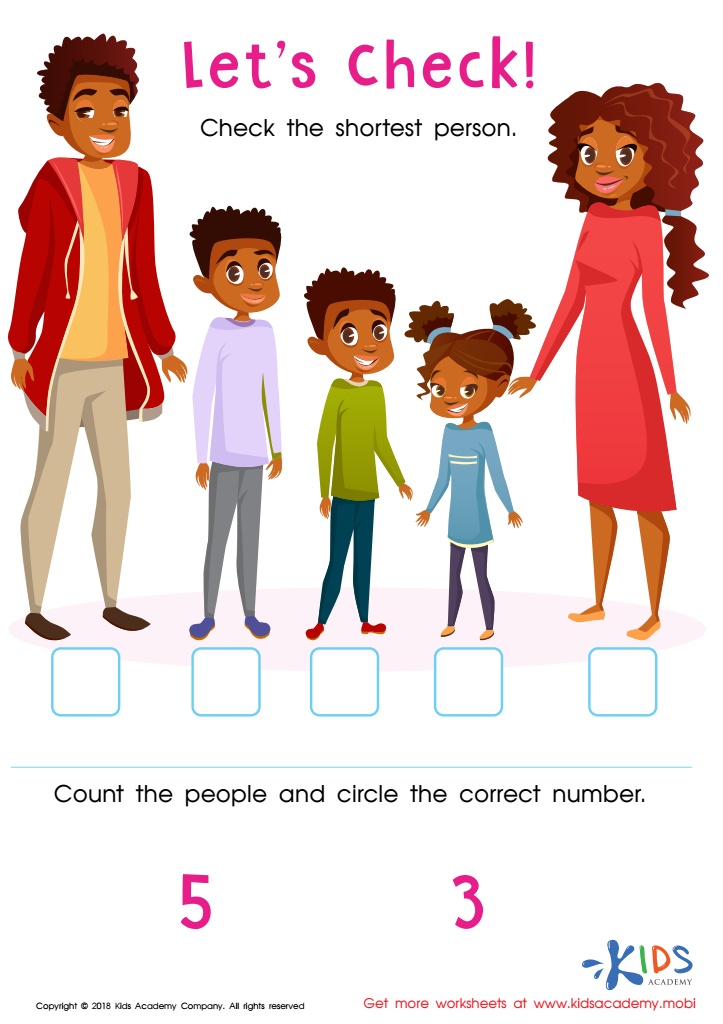

Let's Check! Assessment Worksheet
Check your child's understanding of height with this worksheet. Ask them to sort the objects in order of size and identify the tallest and shortest member of the family in the picture. See if they can correctly arrange the items from tallest to shortest.
Let's Check! Assessment Worksheet
Worksheet


Homes Worksheet
Explain to your child that a home is where people live. Ask if they have noticed homes of different shapes, sizes, and materials in the community. Then, look at the pictures in this worksheet and ask your child to check the ones that show places where people live.
Homes Worksheet
Worksheet
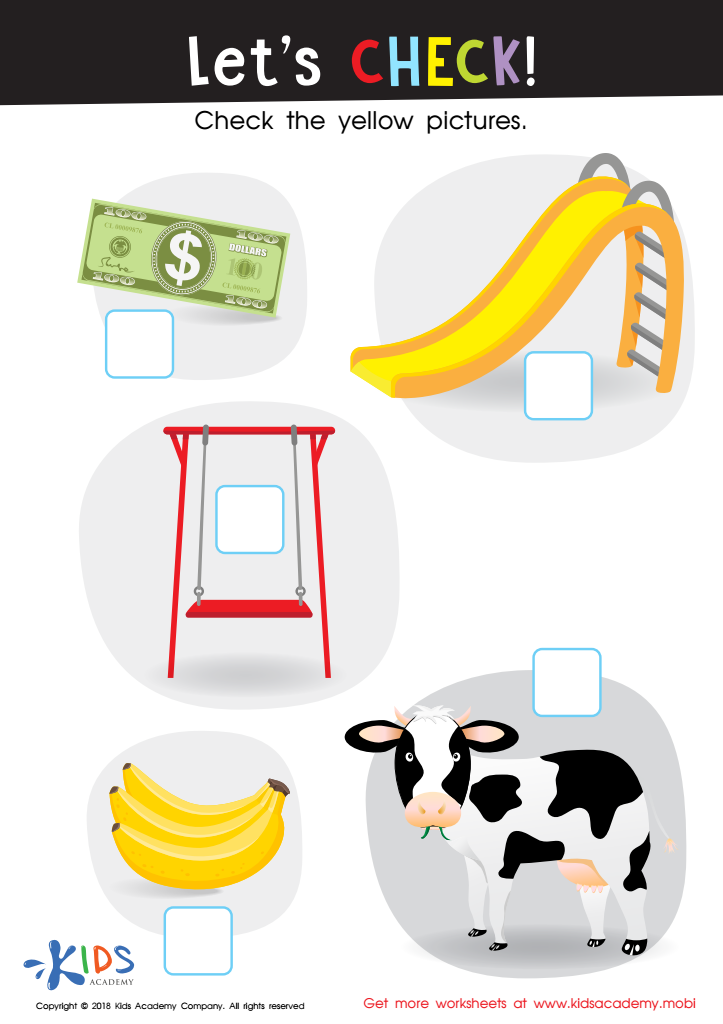

Let's Check! Worksheet
Before starting this coloring sheet, ask your kids to name some colors they know, or point to familiar items and ask them what color they are. Check if they can correctly identify the pictures of yellow objects. Then, you can begin the worksheet.
Let's Check! Worksheet
Worksheet
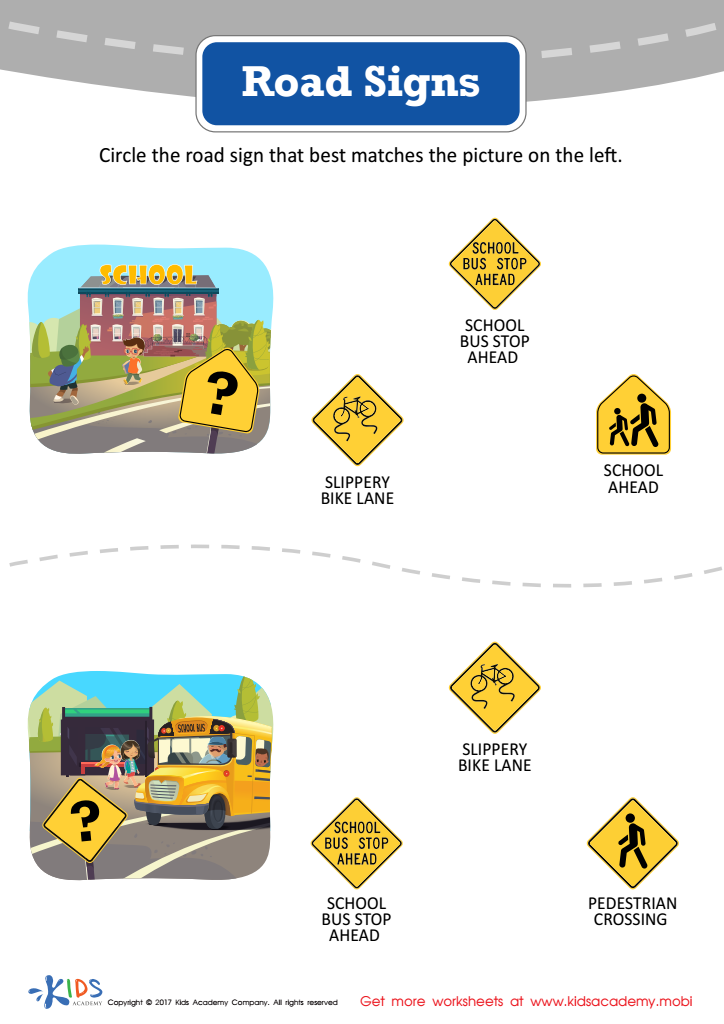

Road Signs (Part 1) Worksheet
Kids are exposed to danger near roads, so help them recognize traffic signs with this printable. It'll foster their reading comprehension and symbol recognition, while keeping them safe.
Road Signs (Part 1) Worksheet
Worksheet
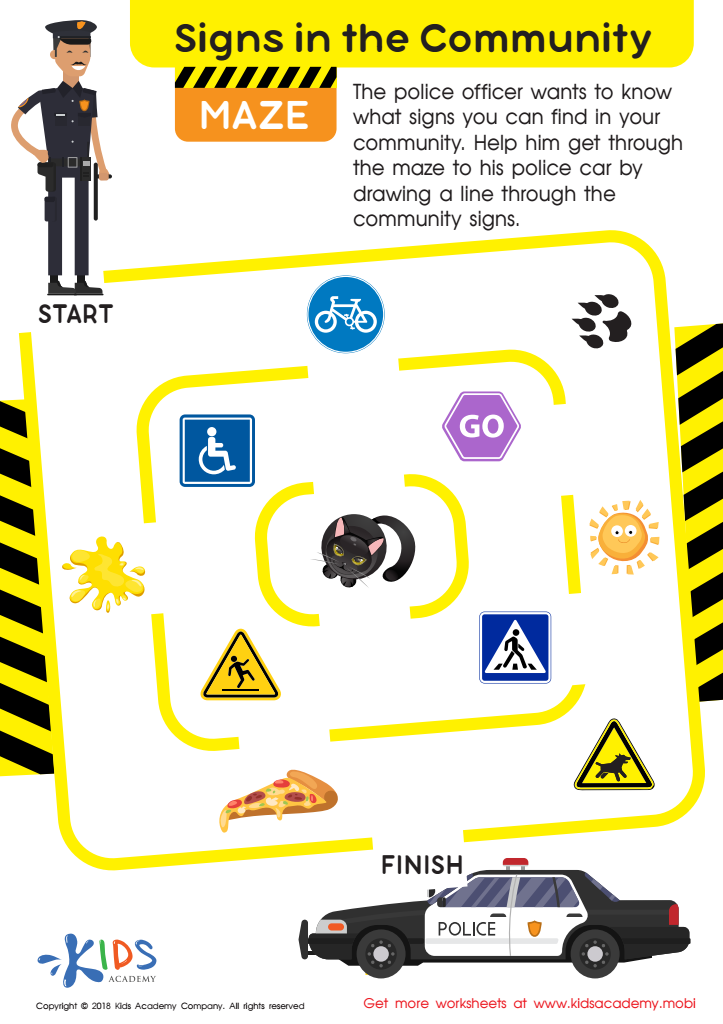

Signs in the Community: Maze Worksheet
This worksheet helps kids build writing skills like good hand grasp, pencil grip and how to hold a pencil. They can trace a path for the community helper to reach the car, learning community signs and strengthening fine-motor and pre-literacy skills while they enjoy the bright, colourful pictures.
Signs in the Community: Maze Worksheet
Worksheet
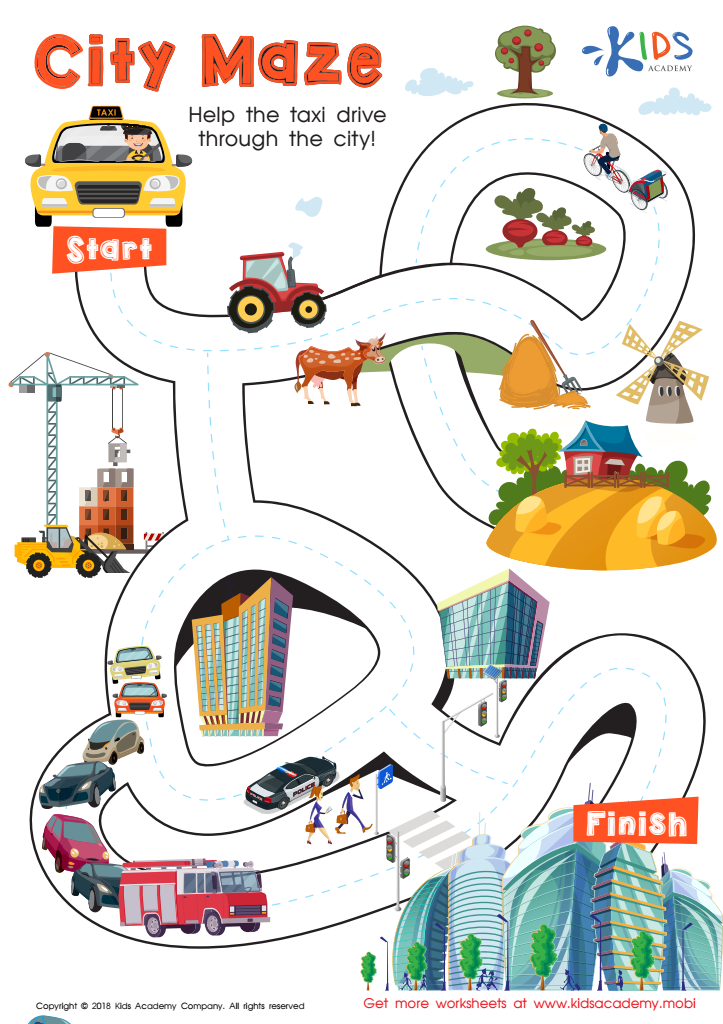

City Maze Worksheet
Kids love mazes! This free PDF city maze worksheet is sure to be a hit. Help your friend the taxi driver get through the maze, following traceable lines through different communities to the big city. It's a fun and challenging way to practice fine motor skills and succeed!
City Maze Worksheet
Worksheet


Cities Worksheet
This worksheet helps kids identify similarities and differences between communities. It offers four pictures of different places to live; country, city, etc. Kids use picture clues to determine which one is a city and can practice their geography and map skills. It's a great way for them to learn, allowing them easy success and reinforcement.
Cities Worksheet
Worksheet


Grocery Store Worksheet
Kids love going to the grocery store for free samples and munchies! With this grocery store sorting worksheet, they can practice sorting, problem-solving and thinking skills. Learning experiences from real life, like grocery shopping, can be brought to your child's desk for fun matching activities. Try it out and look for these items the next time you go to the store!
Grocery Store Worksheet
Worksheet
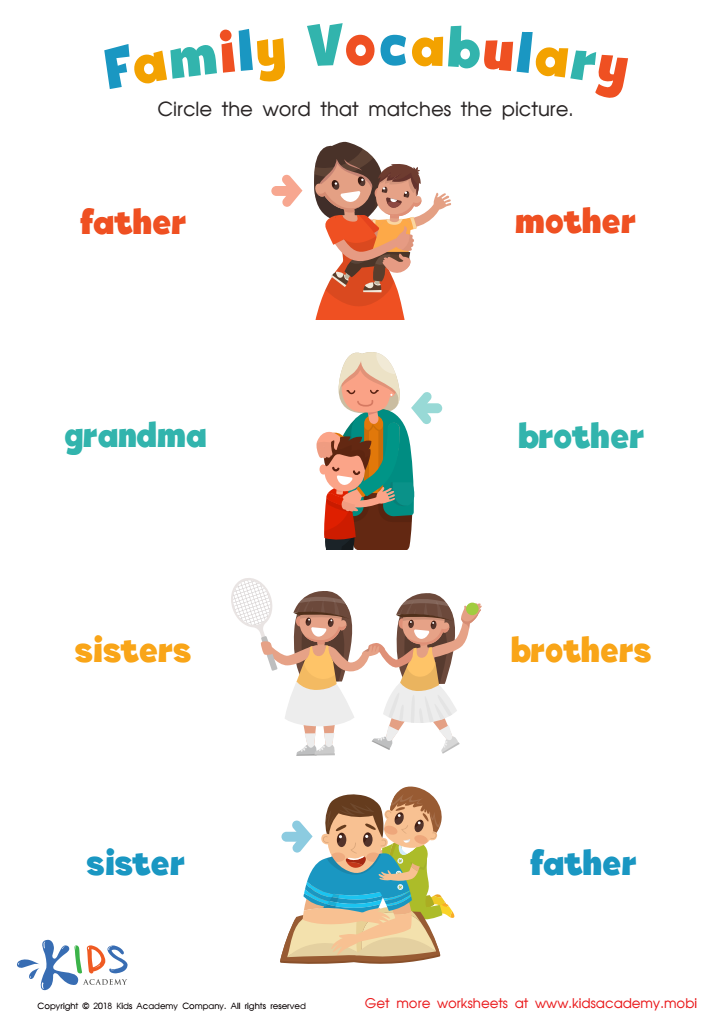

Family Vocabulary Worksheet
Students learn about families in social studies. This worksheet helps them identify family members by looking at a picture and circling the corresponding word. To extend their learning, ask them to talk about their own family members.
Family Vocabulary Worksheet
Worksheet
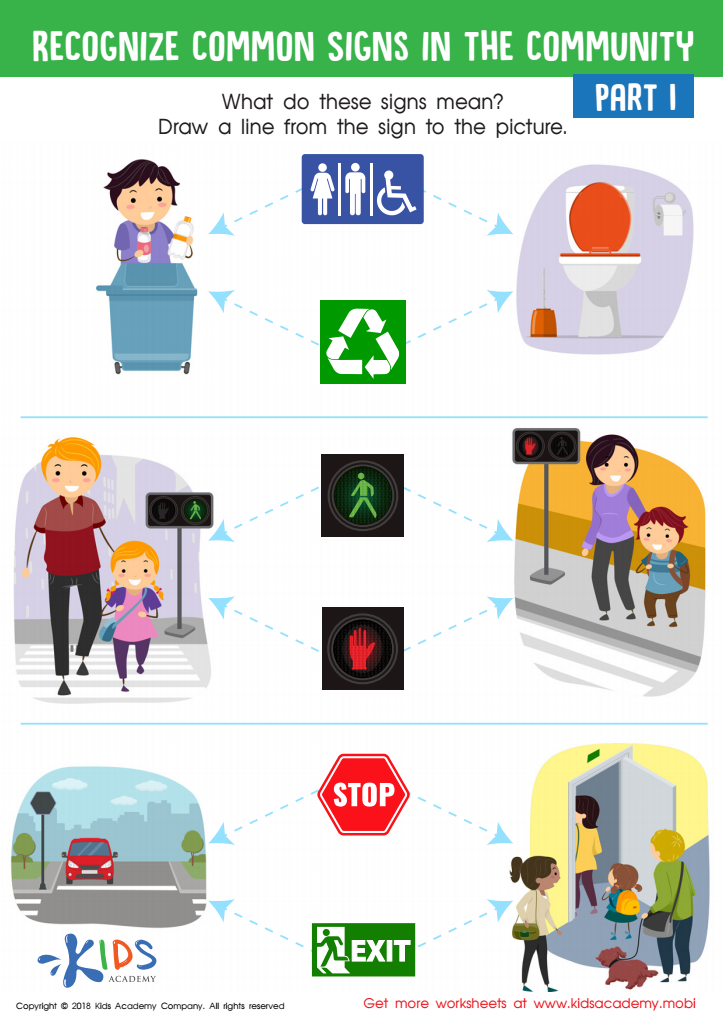

Recognize Common Signs: Part 1 Worksheet
Beginning readers can strengthen picture identification and decoding skills with a free downloadable worksheet. They use traceable lines to match activities in community signs to the correct pictures and build a bridge to reading. This helps familiarize them with their surroundings and starts them on their reading journey.
Recognize Common Signs: Part 1 Worksheet
Worksheet
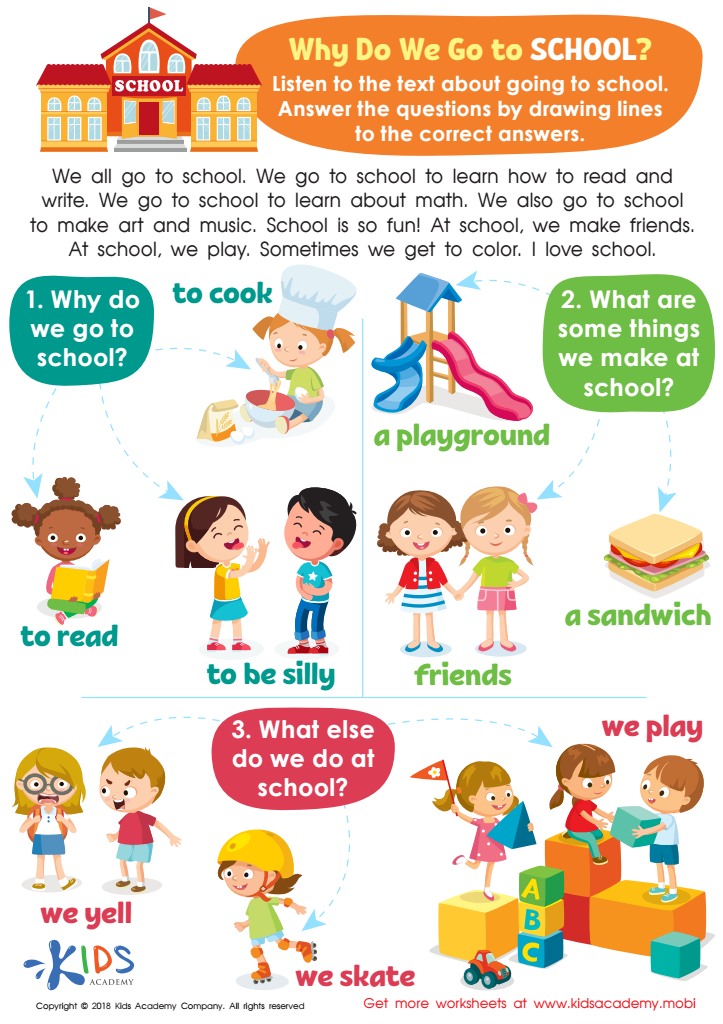

Why Do We Go To School? Worksheet
Ask your kids why they go to school and what they learn. Explain that some schools specialise in certain subjects like music or art. Show them the pictures and help them answer the questions by drawing lines to the correct answers. School is important and helps us learn, even though it may not feel enjoyable at times.
Why Do We Go To School? Worksheet
Worksheet


Playground Worksheet
Head to the park with this playground worksheet! It strengthens sorting and cognitive skills while encouraging problem solving. Plus, it's fun-filled and engaging! When finished, head out to the park to see what items your child finds in the playground!
Playground Worksheet
Worksheet
 Assign to the classroom
Assign to the classroom
